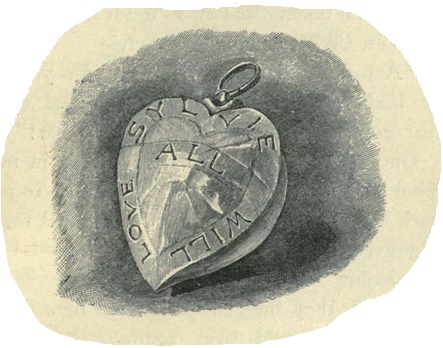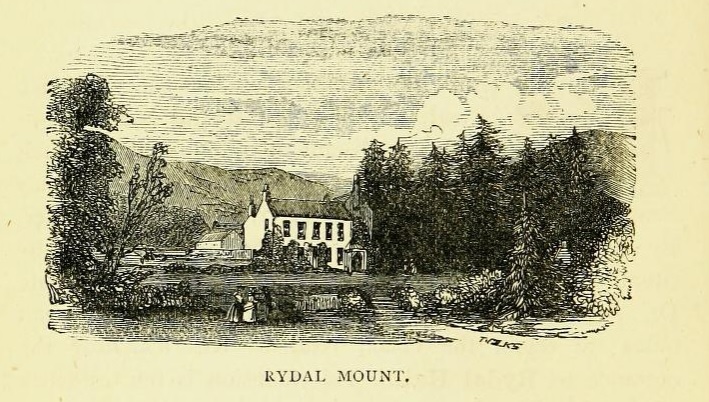TECHNICAL NOTE: The great majority of the links below are to
scanned antique books at the Internet Archive, most of them
anthologies. Poems frequently run for several pages; when coming
to the apparent end of a poem, turn the page to make sure!
The large and well-funded scientific expedition commanded by the
Comte de Lapérouse vanished
in the Pacific in 1789, a mystery that fired the Nineteenth
Century imagination.
To the Rainbow
Anti-scientific.
Carroll, Lewis: (To be added.)
Carruth, William Herbert
-
Each in His Own Tongue
"Some call it Evolution // And others call it God":
the pro-Darwin poem
most-loved by the general public.
Channing, William Ellery:
Chapin, Charles W. E., Jr.:
Chatterton, Thomas: A retrofuturist indeed!
"These are Thy wondrous works, First Source of Good //
Now more admired in being understood."
Chesterton, G. K.:
Ultraconservative religious intellectual who disliked the Nineteenth
Century in which he was born only a bit less than the Twentieth in
which he died. He had little use for science, differing in this and other
respects from his far less abrasive fictional alter ego, the detective Fr.
Brown.
Although Chesterton
opposed Industrial Revolution capitalism, he did not reject
technology as such: he wanted it to be humane and spiritual, as
he supposed it to have been in the Middle Ages.
The Higher Mathematics
Obscure (possibly anti-Semitic or anti-Zionist) satire, with references
to non-Euclidean geometry.
To a Holy Roller
About the Scopes Trial. Chesterton despised both Darwinism and
fundamentalist Protestantism.
Hygiene
Satire against public health authorities who had proclaimed: "All
practical eugenicists are agreed on the importance of sleep."
Professor James Dewar Sometimes attributed to
Chesterton's colleague Edmund Clerihew Bentley.
King's Cross Station
Which will someday be a ruin.
The Song of the Wheels
"You have engines big and burnished, tall beyond our fathers' ken //
Why should you make peace, and traffic with such feeble folk as men?"
Child, J. M.:
Clark, Lewis Gaylord:
Clark, Thomas Curtis:
Well-known as a religious poet in the earlier decades of the Twentieth Century.
Science as the ally of (true) religion.
Clarke, Grant: American popular song-writer.
Co-written with Edgar Leslie. (Link to sheet music.)
Clough, Arthur Hugh:
-
Dipsychus, II, iv: Ah, if I had a course ...
The problem of life in the Industrial Age: one is only a cog in someone else's machine.
-
Dipsychus, II, v:
The scene begins with a solar-system metaphor; the last lines of the previous scene also allude
to astronomy, and there other similar references scattered through the play.
-
The New Sinai
Against scientific atheism.
-
Selene
Gravitation and optics as erotic metaphors.
-
Uranus
Takes a Platonist view of astronomy as a road to higher
wisdom rather than as something valuable in itself.
- ABOUT:
Evidently meaning a
student society at Eton College. "A. H. C." is probably
"Arthur Hugh Clough".
Coleridge, Samuel Taylor: Although among the most
scientifically inclined of the Romantics, he rarely used scientific themes
in his poetry.
as a starving genius.
A Mathematical Problem The teen-aged Coleridge turns a geometry problem into doggerel:
"I may justly plume myself, that I first have drawn the nymph
Mathesis from the visionary caves of abstracted Idea, and caused her to unite with
Harmony."
Priestley
Religious Musings including "musings" on the history and meaning of
physics.
Spots in the Sun
A metaphor.
Coles, Abraham:
A New Jersey medical doctor, he was best known
as a translator of mediæval Latin hymns,
often in multiple versions. However, he also
wrote his own (mainly religious) poetry, work often alluding
to contemporary science but seeming more of the
Renaissance than of the Nineteenth Century.
A response in verse to Humboldt's Cosmos,
containing two verse translations of Psalm 104, a
Romantic science poem God in Nature, and a morning hymn.
Man the Microcosm
So far as I am aware, noöne had attempted to write a piece
like this since the 1600s.
Collins, Mortimer:
Coughlin, William J.:
-
Uker A long, very strange poem with embedded songs.
Cowper, William:
-
From The Task: Book III
(Starting at 'Some drill and bore // The solid earth, and from the strata there'). Strong religiously motivated attack on science (especially geology and astronomy), although later presents a less detailed vision of the 'Christian philosopher', epitomised by Newton.
Crabbe, George:


